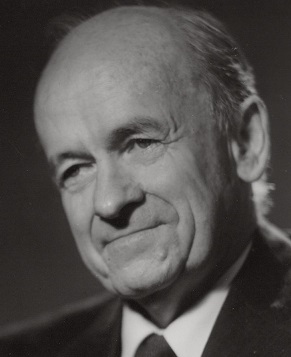John Passmore facts for kids
Quick facts for kids
John Passmore
|
|
|---|---|
 |
|
| Born | 9 September 1914 |
| Died | 25 July 2004 (aged 89) Canberra, Australia
|
| Era | 20th-century philosophy |
| Region | Western philosophy |
| School | Analytic philosophy |
| Academic advisors | John Anderson |
|
Main interests
|
History of philosophy, philosophy of teaching |
|
Influences
|
|
John Passmore AC (born September 9, 1914 – died July 25, 2004) was an important Australian philosopher. A philosopher is someone who studies big questions about life, knowledge, values, and how we should live. John Passmore explored many of these ideas throughout his long career.
Contents
Life and Education
John Passmore was born in Manly, Sydney, in 1914. He grew up there and went to Sydney Boys High School. After high school, he studied at the University of Sydney. He earned top grades in English literature and philosophy. At first, he planned to become a high school teacher.
A Career in Philosophy
In 1934, John Passmore started working as an assistant lecturer in philosophy at the University of Sydney. He taught there for many years until 1949. In 1948, he traveled to study at the University of London in England.
From 1950 to 1955, he became the very first professor of philosophy at the University of Otago in New Zealand. In 1955, he spent a year studying at the University of Oxford in England. When he returned to Australia, he joined the Australian National University. He was a professor of philosophy there from 1958 to 1979.
John Passmore also taught in other countries. In 1960, he was a visiting professor at Brandeis University in the United States. He gave lectures in England, the United States, Mexico, Japan, and several European countries.
Besides his academic work, he also helped the arts. He served as a director and governor for the Australian Elizabethan Theatre Trust. This trust helps support theatre in Australia.
In 1994, John Passmore received a very high honor. He was appointed a Companion of the Order of Australia (AC). This is Australia's top award for civilians. He passed away on July 25, 2004, at the age of 89. He was survived by his wife, Doris, and their two daughters.
His Ideas and Work
John Passmore was not just a philosopher; he was also a historian of ideas. This means he looked at how different ideas have changed over time. He always paid close attention to the history behind philosophical problems. He wrote about twenty books, and many of them were translated into other languages.
Frank Jackson, another philosopher, said that Passmore "shaped public debate." He helped make philosophy and the history of ideas understandable to more people.
Views on Nature and the Environment
One of his most famous books is Man's Responsibility for Nature (1974). In this book, Passmore argued that we urgently need to change how we treat the environment. He believed that humans cannot keep using Earth's resources without limits.
However, he did not think we should completely give up on science and reason. He was careful about ideas that suggested radical changes to our way of thinking about nature. For example, he was skeptical of "deep ecology" ideas. Deep ecologists believe nature has its own value, separate from humans. Passmore thought some of these ideas were too mystical or not based on reason.
Passmore believed that nature is valuable because of what it gives to living creatures, including humans. This idea is called anthropocentrism, which means "human-centered." William Grey, from the International Society for Environmental Ethics, noted that Passmore's clear human-centered view made him a key figure in environmental discussions. Many books on environmental ethics start by discussing or disagreeing with his ideas.
John Passmore described himself as a "pessimistic humanist." This means he believed in human values and potential, but he also thought that humans and societies could never be perfect.
 | James Van Der Zee |
 | Alma Thomas |
 | Ellis Wilson |
 | Margaret Taylor-Burroughs |

